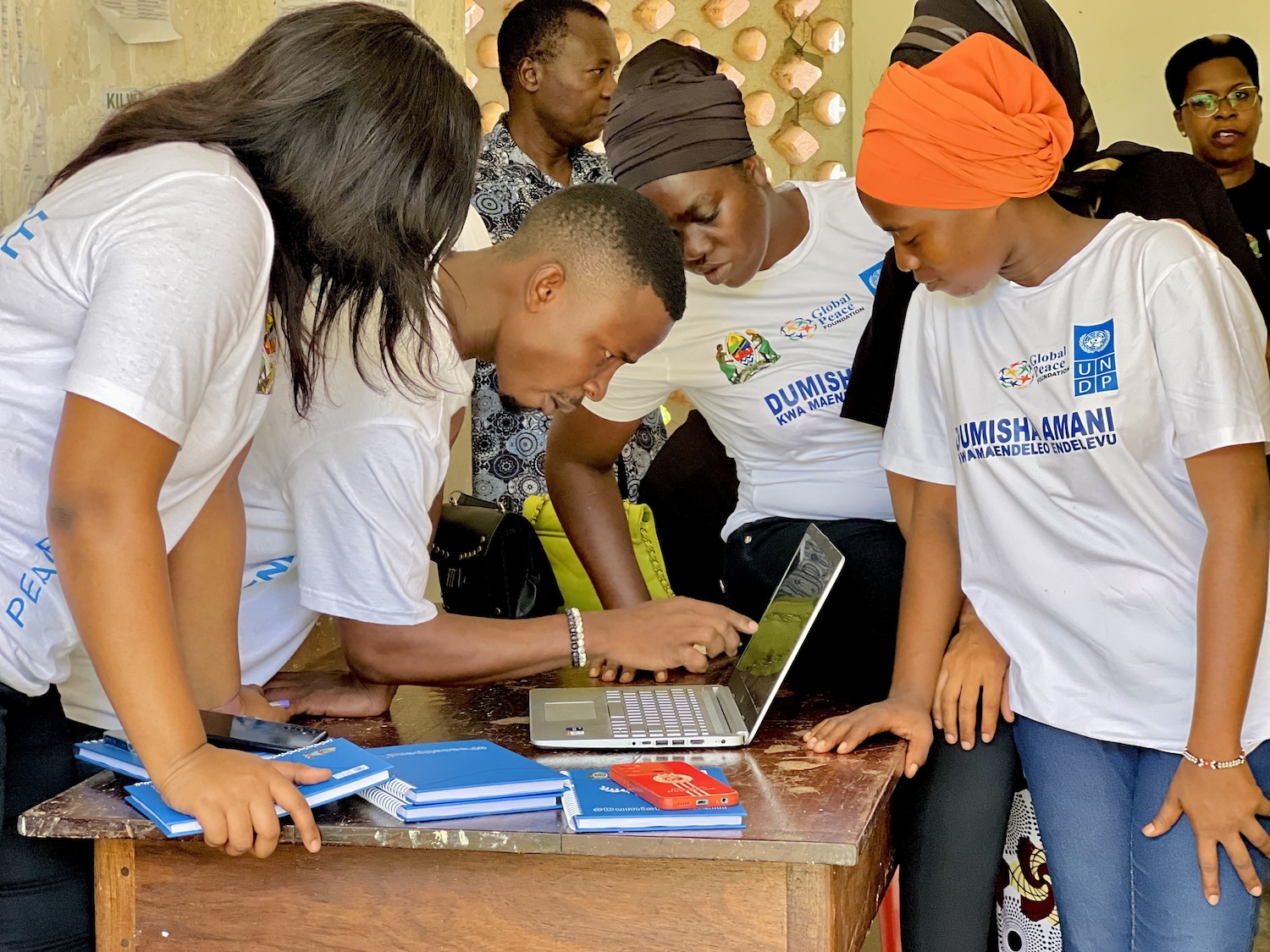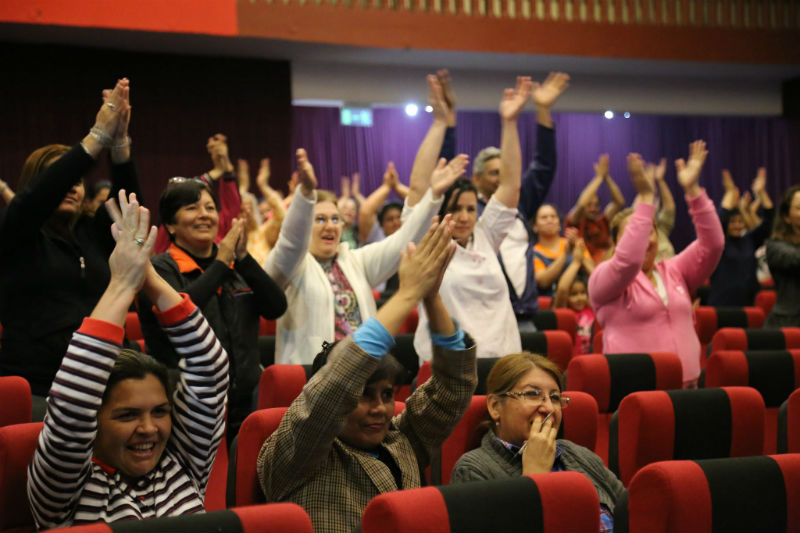Experts and Faith Leaders Affirm Religious Freedom as a Fundamental Human Right Essential to Building Equitable Societies
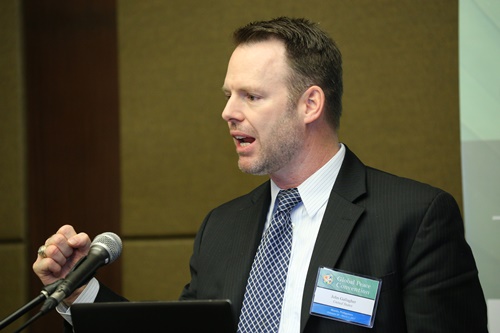
Lieutenant Colonel John Gallager, expert on counter-terrorism.
“Common ground is hallowed ground,” said United States Lieutenant Colonel John Gallager, setting the tone for the Interfaith Peacebuilding session titled, “Religious Freedom: An Essential Human Right in a Free and Just Society.” The discussion on the role of religion in developing the conscience of a nation’s citizenry took place among representatives of four nations and religious traditions on March 1 during the 2017 Global Peace Convention.
Lt. Col. Gallager, an expert on counter-terrorism and advisor to the U.S. presidential transition team on cabinet-level appointments, asserted that there are shared values that honor the dignity and fundamental human rights of all people that span across not only different religions, but also nations.
He cited speeches by former Presidents Barack Obama and George W. Bush, delivered to the West Point Military Academy. Both leaders from opposing political parties expressed the same commitment to the United States’ founding documents that acknowledge religious freedom and other liberties as inalienable rights essential to forming the identity of a nation among diverse populations.
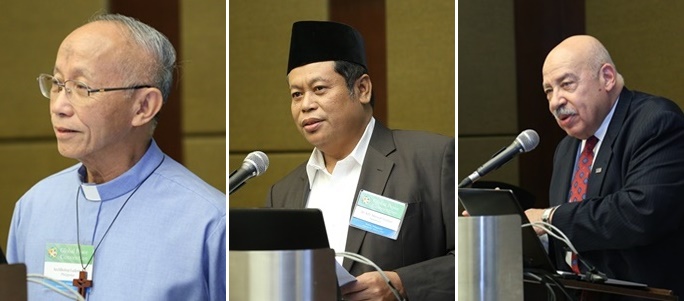
(Left to right) Archbishop Antonio Javellana Ledesma, former chair of the Catholic Bishops’ Conference of the Philippines Commission on Interreligious Dialogue who serves the Metropolitan Archdiocese of Cagayan de Oro, Dr. K.H. Marsudi Syuhud, Chairman of International Relations and Economic Development for Indonesia’s largest Muslim organization, Nahdlatul Ulama (PBNU), session moderator Alan Inman, President of the Global Peace Foundation USA.
Archbishop Antonio Javellana Ledesma, former chair of the Catholic Bishops’ Conference of the Philippines Commission on Interreligious Dialogue who serves the Metropolitan Archdiocese of Cagayan de Oro also referenced the U.S. Declaration of Independence, drawing parallels to his faith tradition. “Catholic tradition starts from the universal declaration of human rights,” he said. He uplifted the role of all religions, including Christianity and Islam, as ways through which humankind connects to their conscience as fundamentally spiritual beings. “Respecting everyone’s conscience is also respecting human dignity,” said the Archbishop.
The panel also addressed threats to religious freedom found in many modern societies, listing governmental fear of losing control; a majority citizenry that support the current balance of power that favors a specific religion; and national identity, amongst other causes.
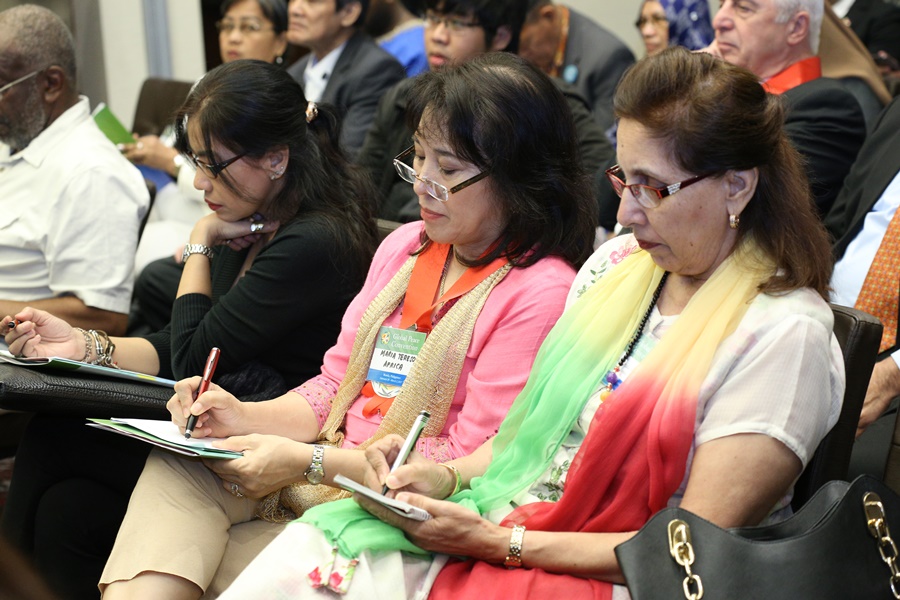
Audience takes notes during one of the sessions
Dr. K.H. Marsudi Syuhud, Chairman of International Relations and Economic Development for Indonesia’s largest Muslim organization, Nahdlatul Ulama (PBNU), painted a stark picture of the recent citizen protests that took place in Jakarta in late 2016, instigated by insensitive religious remarks made by a standing government official. He underscored the important role of religious leaders and governments to honor religious differences while upholding shared values as a common ground for consensus.
Lt. Col. Gallager noted that instability often results when governments fail to extend fundamental rights, like religious freedom and the rule of law, to all of their citizens. Extremists can tap into this anti-government sentiment to recruit and indoctrinate their followers to kill in the name of God. “No matter what your religious tradition, the ‘God’ that created you did not outsource the creation of your enemy to some other god,” stated Lt. Col. Gallager. “Which means, violent extremism is God’s creation killing God’s creation — in the name of God. Frankly, I consider nothing more illegitimate.”
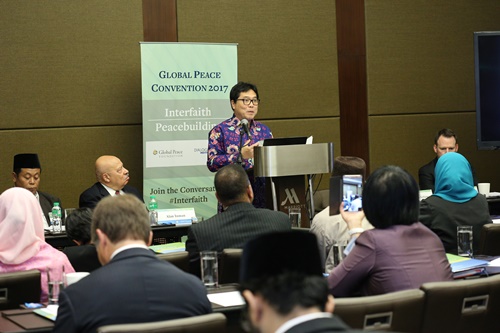
Chairman of GPF Indonesia and Coordinator of the Presidium of MATAKIN, the Supreme Council of Confucian Religion in Indonesia, Dr. Chandra Setaiwan and panelists of the Interfaith Track session on religious freedom.
Chairman of GPF Indonesia and Coordinator of the Presidium of MATAKIN, the Supreme Council of Confucian Religion in Indonesia, Dr. Chandra Setaiwan, said religious communities share a responsibility to contest the modern view of religious extremism by becoming “living examples of the power of self-criticism and renewal,” exhibiting the essential role of religion in fostering the practice of self-reflection in all people as spiritual beings.
Experts will continue to discuss the importance of interfaith dialogue, strategies and practical applications of a global ethic to address identity-based conflict and violent extremism on the Interfaith Peacebuilding track presented throughout the 2017 Global Peace Convention. The convention concludes on March 2nd.


